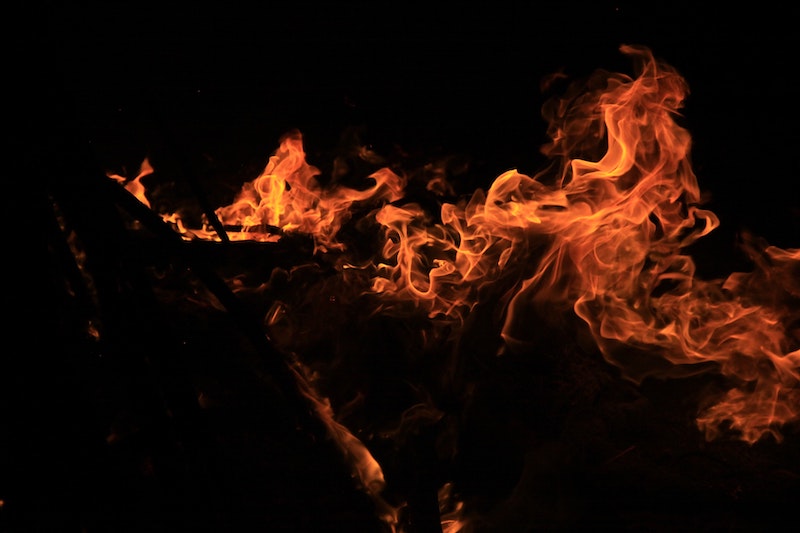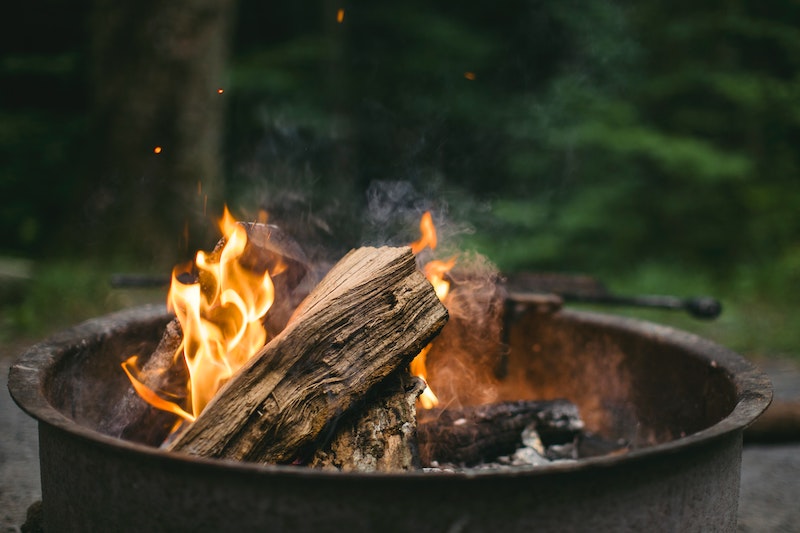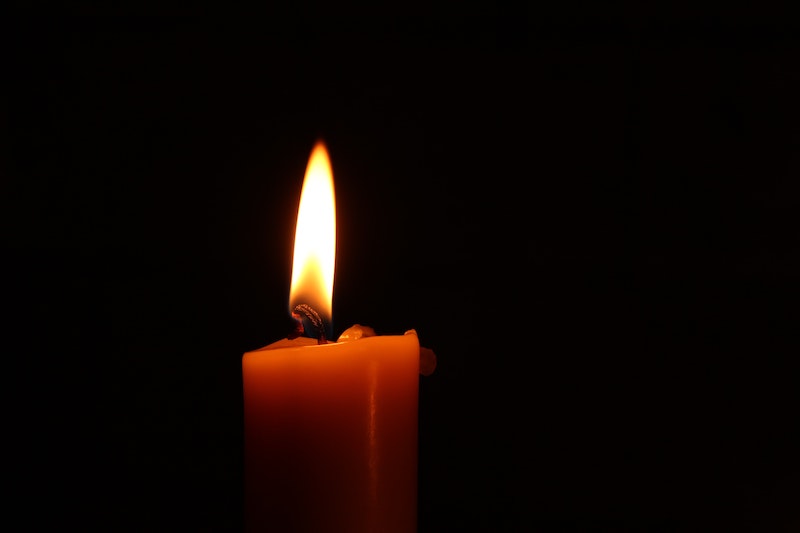- What kind of fire damage is covered by your renters insurance policy?
- When fire is not included in your renters insurance coverage
- How much does your insurance pay if your stuff got damaged by fire?
- What if the fire damages your apartment in a way that makes it temporarily uninhabitable?
- Are there specific coverage limits when it comes to fire damage?
- Whose insurance handles fire damages to your building?
- Tips to prevent a fire
- Before we go
Here’s the good news: Your renters insurance policy will likely cover most losses from fire, regardless of what actually caused the blaze—as long as it wasn’t set intentionally.
Renters insurance also includes loss of use coverage, which can help cover the costs if you need to evacuate your place in the wake of a fire, as well as personal liability coverage, which could come into play if you’re responsible for accidental fire damage to other people’s property or your unit.
- Renters insurance typically covers fire damage caused by accidents, faulty appliances, electrical issues, and more. Coverage includes reimbursement for personal property damaged by fire, but not for items owned by your landlord or for structural damage to the building.
- Valuables may have coverage limits, but you can purchase Extra Coverage for items like jewelry, artwork, bikes, and cameras.
- Loss of use coverage can help with additional living expenses should your apartment become uninhabitable due to fire.
- Your policy’s liability coverage may also come into play if you’re responsible for fire damage to neighboring units, or to your landlord’s property.
Let’s take a deep dive into what you need to know about fire and renters insurance.

What kind of fire damage is covered by your renters insurance policy?
Renters insurance covers many different types of fire damage, whether it’s a kitchen fire, an electrical fire, or a fire that starts accidentally (for instance, a candle that’s left unattended).
Here are some additional examples:
- Heating or cooking accidents
- Faulty appliances
- Chimney fires
- Electrical fires
- Fires due to fireworks
- Fires caused by children or pets
- Wildfires and the evacuation from wildfire (if you’re in a zone that’s subject to a mandatory evacuation order by the state)
- Fire caused by lightning hitting your building
- Arson committed by a third party
- Fire damage to personal property in your car should your vehicle catch on fire
- Fire damage to items you keep in storage (covered up to 10% of your policy’s limit)
Your renters insurance may reimburse you for fire or smoke damage that affects your personal property, whether that’s your clothing, furniture, or electronics.
But it wouldn’t kick in to cover stuff in your home that you don’t own yourself—like your fridge or stove (if the landlord owns those), or the physical structure of the apartment itself. That would fall under your landlord’s own insurance policy.
Fires outside the home
In some instances your things would be covered for damages by fires in other locations outside of your apartment as well. If your backpack containing your phone and laptop catches on fire during a barbecue at your friend’s house, the bag and its contents would likely be covered.
When fire is not included in your renters insurance coverage
There are two main instances in which your renters insurance would not cover fire damage:
- If you or someone who is insured under your policy intentionally sets fire to your things, don’t expect your coverage to help out
- The same applies to fires that break out before you’ve bought your insurance policy, or before it has been activated. A policy bought on November 1 wouldn’t retroactively cover fire damage that happened back in October.
It’s important to keep in mind that some fire damages might not exceed your insurance deductible. Picture this: you forgot to blow out your candles, and your $200 coffee table burns to a crisp. Luckily, none of your other belongings have been harmed. In this case, if your deductible is $250 or higher, you’ll have to pay to replace your broken table out of pocket.

How much does your insurance pay if your stuff got damaged by fire?
After you’ve met your deductible, your insurance company would likely reimburse for your destroyed personal belongings.
So no matter what got burned to shreds, or fell victim to smoke damage—your clothes, stereo, or vintage furniture—your insurance would help you cover the costs these items would go for today.
However, certain valuables such as jewelry, antiques, musical instruments, or artwork may only be covered up to a certain sublimit. Don’t stress, though. If you have pricey necklaces or guitars, you can add Extra Coverage for them ( ‘scheduled personal property endorsement,’ in insurance-speak.)
What if the fire damages your apartment in a way that makes it temporarily uninhabitable?
In this case, your renters insurance’s loss of use coverage kicks in. Your insurance provider assumes that due to the fire you’ll likely incur additional living expenses. Most policies will reimburse you to cover costs for alternative temporary housing, meals, and may even assist you in finding a new permanent residence.
If a fire originating at your place were to make its way over to your neighbor’s apartment and you’re held responsible, those damages would likely also be covered under your renters policy. In that case, your renters insurance’s liability coverage would help reimburse your neighbor for any property damage or bodily injury caused by the fire.
Are there specific coverage limits when it comes to fire damage?
In most cases, fire damage is covered up to the personal property coverage limit you selected when you bought your policy (at Lemonade the minimum you can choose is $10,000, and the maximum is $250,000). However, as mentioned before, your regular deductible applies to any scenario that relates to fire, so you’ll be responsible for that before your insurance kicks in.
As a general rule, make sure you read your policy thoroughly to see if there are any exclusions or special limitations when it comes to certain items.
Whose insurance handles fire damages to your building?
If the building you live in got damaged by fire, it’s primarily the building owner’s responsibility to handle the situation using their own insurance policy.
Is there anything that’s needed from your end? You might have to move your things out of your apartment so repair work can take place. However, other than that, caring for the actual building doesn’t fall under your or your renters insurances’ responsibility.
An exception is if you’ve accidentally caused the fire, with damage to other units or your landlord’s property. In that case, your personal liability coverage may kick in.

Tips to prevent a fire
Here are some quick tips to keep your rental home safe and fire-free:
- Never leave a burning candle or any other source of fire unattended if you leave your home or go to sleep. Consider candle alternatives that don’t actually light on fire but still look nice.
- Don’t leave space heaters running or unattended.
- Practice smart kitchen safety, as cooking incidents are the top cause of residential fires.
- Avoid smoking indoors.
- Make sure electrical cords are in good shape.
- Always double check to make sure you’ve turned off the oven and stove after using it.
- Keep the area around your stove, plugs, radiators, and burning candles clear so nothing around it can catch fire.
- Make sure you know the location of your fire extinguisher so you can easily access it in case of an emergency. Also, school yourself on how to actually use a fire extinguisher before you really need it.
- Install smoke detectors and fire alarms. (Installing these might qualify for a discount on your Lemonade renters policy.)
Before we go
We hope you never have to deal with the anxiety of an apartment fire. But one silver living is that having a great renters insurance policy insures your valuable stuff can be salvaged if disaster strikes.
In fact, fire is the reason property insurance policies were created in the first place.
Insurance as we know it originated in the Great London Fire of 1666. After the tragedy, some (pretty smart) people decided that it would be beneficial to spread the risks across groups. Et voilá, the first official fire mutual company was brought to life in 1684.
Fast forward over 300 years, and Lemonade’s 21st-century renters insurance has your back if fire strikes your home. Click below to get your online quote today—it’s simple, fast, and hassle-free.
A few quick words, because we <3 our lawyers: This post is general in nature, and any statement in it doesn’t alter the terms, conditions, exclusions, or limitations of policies issued by Lemonade, which differ according to your state of residence. You’re encouraged to discuss your specific circumstances with your own professional advisors. The purpose of this post is merely to provide you with info and insights you can use to make such discussions more productive! Naturally, all comments by, or references to, third parties represent their own views, and Lemonade assumes no responsibility for them. Coverage may not be available in all states.




